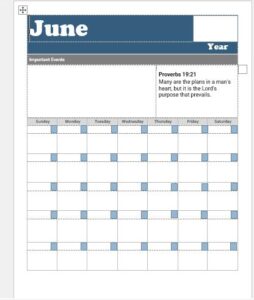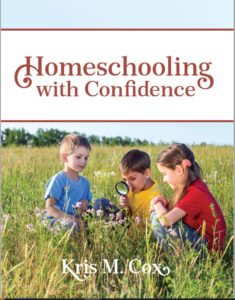
Tips for Teaching Your Children through the COVID-19 Pandemic
We are living in unprecedented times, with the Coronovirus pandemic throwing our lives into unexpected turmoil and change. To stop the spread of the virus, almost everything is cancelled. Suddenly schools, restaurants, stores, and more are closed for an indefinite amount of time.
Parents are finding themselves responsible for teaching their children at home for the first time, some while they are still required to work themselves.
If you’re a parent in this situation, I want to encourage you to look at this as a wonderful opportunity to spend time with your children and enjoy learning with them. Give yourself and your children time to transition, this is a big change for both of you. Talk openly about what’s happening in the world and help your children process their emotions through this.
Realize that you have already been teaching your children so many things! Who taught them to walk, talk, get dressed, and to get along with others, etc.? YOU did! You’re just adding the academic piece to the picture. You can do this! And there are a lot of resources available to help you!
Here are 10 tips for teaching your children during this time:
1. Focus on developing a learning lifestyle rather than trying to imitate what the public school does. You’re a family, not a classroom of 30 kids, so structured learning times will often be shorter than the eight-hour public school day. Look for learning opportunities throughout your day and take advantage of them. Listen to your children’s questions and help them find answers – discovery learning like this is one of the best ways for kids to learn. Encourage your children to think of things they want to learn about and then provide the resources for them to do it. Read Charlotte Mason’s approach to learning, it’s relaxed and very effective.
2. Focus on Math and Language arts skills. These are core subjects that your children should continue to work on during the pandemic. If you plan to have your children return to the public school system once this pandemic ends, teachers are recommending that you follow the Core Standards, especially for these two subjects.
If you don’t know your children’s skill level in these two subjects, do an assessment through Let’s Go Learn – use the family version under retail and do the assessments. This assessment will help you learn what areas your children need extra work in as well as where they have strengths. Focus on helping them retain what they know and continue learning from where they are at. There are many free resources to help you do this (see list below).
The other subjects are also important, so as you can fit them in, also provide resources for your children to learn science, history, art, music, phy-ed and health. There are resources listed below for these as well.
3. Find ways to make learning fun! We have a plethora of fun learning opportunities on the web that are free or inexpensive. Use Pinterest or one of the many resources I’ve listed below to help teach your children.
- Play board games with your children (check out my blog posts on using games and my Recommended page for ideas)
- Read aloud to your children (Read Aloud Revival is a great resource for book ideas)
- Do virtual field trips via video or on the web
- Bake together, do fun projects around the house together
- Be creative, find fun things to do related to your children’s interests. If they’re fascinated with Legos, find some fun things to build on Pinterest (there are some great creative ideas for things to do with kids on Pinterest!) If they love animals, consider getting a new pet and having them help with training and care. Build learning opportunities around their interests.
4. Teach your children life skills. Do your children know how to clean, wash clothes, make food for themselves, etc.? This is a great time to help them develop these skills. With them home all the time, you’ll need their help in keeping the house clean, and they need to learn these skills. Set up a chore system to keep things running smoothly so you’re not nagging them. This is a great time to do some organizing and teach your children organizational skills. Teach them basic hygiene, how to avoid catching or sharing germs in a pandemic! (Download a free PDF of age appropriate chores)
5. Set up a daily routine. Children need routine and your children will be looking for structure to their day. Some children may even benefit from having a schedule posted on the wall showing when you will have structured learning times and when they have free time. Remember to take breaks between any structured learning times. Children need physical activity to get refocused, especially younger children. (Download a free PDF of a sample schedule)
6. For the working parent. If you’re working full or part-time you can adjust your schedule so you’re teaching your children when you’re free. For the times that you’re working, provide your children with learning opportunities and resources that they can do on their own. Have an hour quiet time each day and have older children help with younger children as needed. Enlist your children’s help with home chores and meal prep/clean up, it helps them build essential life skills and will ease your stress.
7. Create age appropriate learning stations in your home (art, science, math, reading, geography, etc.). Learning stations can be a bin with materials in it, or a specific area of the home with learning materials. An Art station would have creative arts and crafts materials with idea books or printed guides from Pinterest or the web. A Reading station would have great literature for them to read. A Math station would have math games or an IPad with math learning apps, games. A Science station would have materials for them to do an experiment and information on how to do it. A Geography station would include a map of the U.S. or the world, with books about the world and the different areas, or geography games. Require your children to spend time doing at least 2-3 learning stations a day as well as independent reading and doing some math exercises.
8. Listen to audio books. Listening to books builds literacy skills, listening skills, focusing skills, imagination, and more. Here’s a free app with audio books or access the public library online through the cloudLibrary app. http://www.openculture.com/freeaudiobooks. Audible stories are also offering free audio books for kids during the pandemic.
9. Encourage a love for learning. Help your children understand the importance of being lifelong learners – there’s always more to learn and it’s to our benefit to keep learning all through our lives! You can be an example to them by showing them that you are still curious and want to learn new things.
10. Seek advice from friends or experts. Call friends that are in the same boat to see what they’re doing for teaching their children. On Facebook join the group called “Emergency Homeschooling” – there are lots of great ideas there! There are also many other Facebook homeschool groups, just plug in “Homeschool” and join some. Call a homeschool family you know and ask them for advice. I’m also happy to schedule an online meeting with you to help you figure out a plan for your family. Contact me for a consultation!
If you’ve got teens at home, check out this post on the 5 Do’s and Don’ts of Homeschooling your Older Student from Crosswalk.
Most importantly, as a Christian, I encourage you to pray for God’s peace, guidance and help during this time as well. You aren’t alone in this. He is there for you if you reach out to Him and pray.

Do you want to learn more about trusting in God?
God loves you and wants a relationship with you – He wants to help you through this stressful time, I encourage you to turn to Him and trust in Him.
Free or Inexpensive Teaching Resources:
All subjects:
Teachers Pay Teachers: there’s a plethora of free worksheets and teaching resources for many subjects and all grades, many are free.
Kahn Academy – sign up to access teaching resources for math, science, arts and humanities, computing, ELA, and more.
Free audio books and courses on many subjects at Open Culture
Audible Stories – free audio books
ETap Full curriculum online – free during this crisis
More free resources: http://www.openculture.com/free_k-12_educational_resources
PBS Learning Media – free resources and videos
Phonics:
- Starfall Learn to Read app
- Abcmouse.com – an app for reading, math, science, art & colors
- Phonics free resources: Sound City
- All About Learning has both a reading and spelling program that are excellent (there is a cost for these) and there are free resources as well.
- Sight word lists and learning resources at Sight Words.com
Math:
- Numbers and Math for Kids app by EDUBUZZKIDS (preK-K)
- Prodigy Math Game app for 1-8 graders
- Khan Academy
Preschool/Kindergarten unit study curriculum
Five in a Row – a unit study that uses a short children’s picture book as the basis for studying science, history, art, etc.
Science
- SuperCharged Science has free videos and resources, plus options for signing up for video classes for science
- Science Activities for Kids
- Frontiers for Young Minds: Science
- My First Garden – since we’re coming into spring!
- Discovery
Social Studies
- Homeschool Pop – a youtube channel with lots of educational videos for elementary age children
- IXL Social Studies
- Best of History Web Sites
- Read historical fiction related together related to the time period studied to make history come alive!
Art
Music
Physical Education
- Fit Dice game
- 10 Free Phy-Ed Apps for Kids
- More ideas on Pinterest
- Physical Activity Log for your kids to keep track of exercise (free PDF)
Could you use help staying organized during this time?
Check out The Homeschool Life All-in-One Planner!
This planner has everything you need to manage your home and school well! It guides you through setting up a chore system, meal planning system, goal setting, and has great record keeping documents for homeschooling. Download the digital version for only $18.00!
Please comment below and share any free resources you’ve found! Or feel free to ask questions…






Trackbacks/Pingbacks